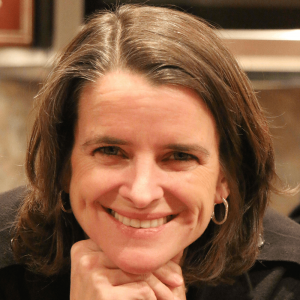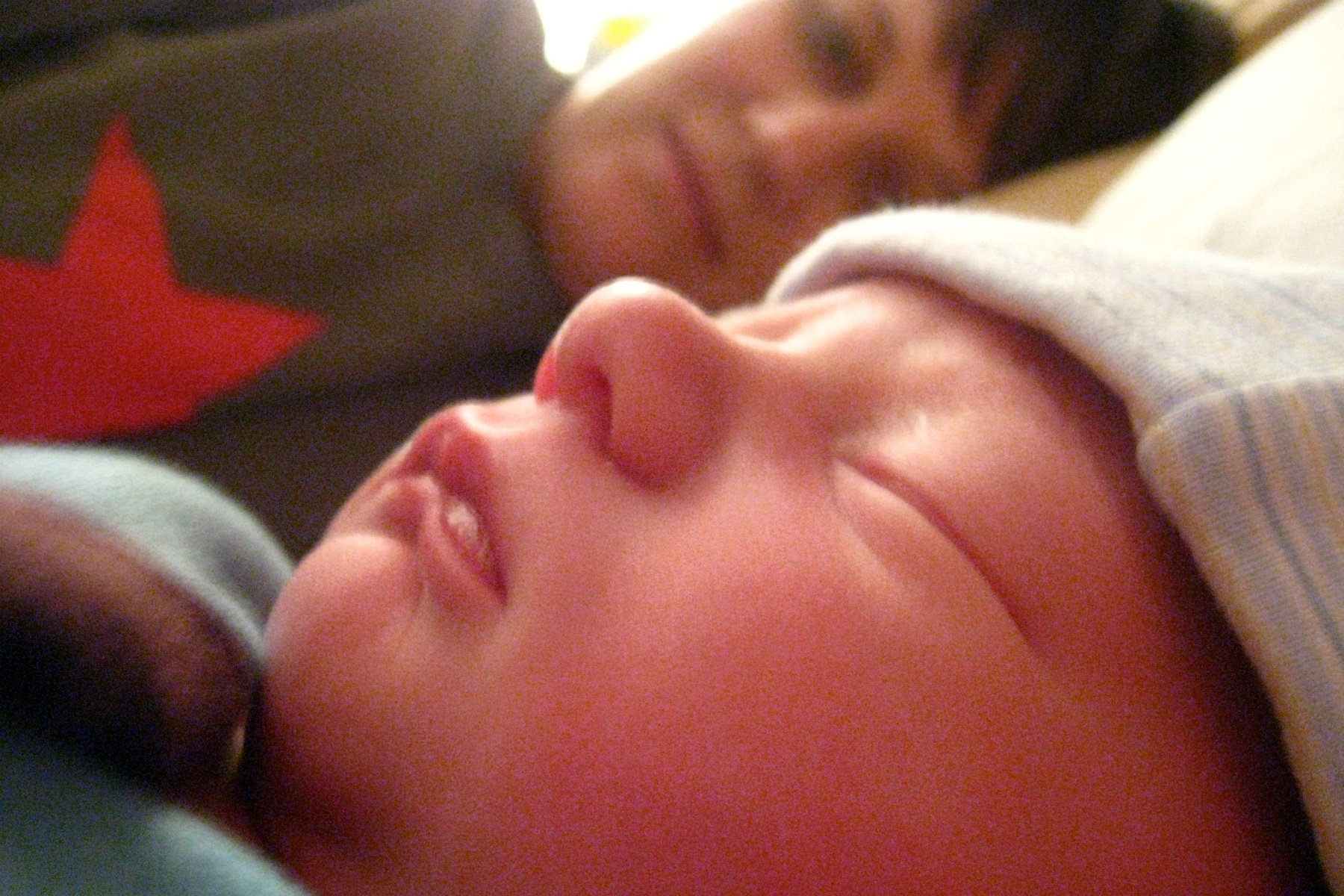Marianne Stroud has been assisting at births since she was a teenager in South Africa, tagging along with her mother who worked as a midwife there. Today she is a Certified Nurse-Midwife and mother herself, as well as a convert to Catholicism, who works at a practice that was founded to offer women an authentically pro-life approach to women’s health services. The Fertility & Midwifery Care Center, based in Ft. Wayne, IN, employs both CNM’s and OB/GYN’s (including her husband, Christopher Stroud) and utilizes the Creighton Fertility Model/NaProTECHNOLOGY to offer a full range of obstetrical, fertility, and gynecological care. She is also the Board Chairman of Women’s Health Link, a not-for-profit organization designed to help women connect with pro-life healthcare and other various services. The following is the text of the telephone interview Stroud granted to Church Life Journal, as part of our wider attempt to foster a greater attention to the pastoral needs of women in the Church today.
TG: Could you speak to possible misconceptions about a Catholic approach to fertility and infertility? Having accompanied so many couples through struggles with infertility, what do you wish were more widely known or thought about in this vein?
MS: I don’t think we as a Church do a good job at teaching that NFP is a viable option. Ninety percent of people, or a large percentage in any case, think NFP is a joke. Our young people who are soon to be married go through the classes rolling their eyes, knowing that they’ll use artificial contraception instead. If they thought it worked, they might be much more inclined to learn it. Instead they think that using NFP is like playing roulette. This is the impression that’s hanging on, and we really need to work on awareness. If we want Catholics to follow Catholic teaching, they need to know that NFP is not only an effective and viable option but that it can be helpful rather than harmful: that it actually helps marriage rather than hurting it, and that it presents a contrast to all the issues that come along with contraception, from the Pill as an abortifacient to the ways in which it harms women’s bodies.
The stats on the Creighton method are 98% typical use. 99% effectiveness rate is what gets listed for the Pill, but literature simply drops the term “ideal,” when 90% is the typical use effectiveness rate—and this is well published data.
As for infertility, most people think the only thing they can do is break with Church teaching, or go with adoption, not knowing there is another option that is good and OK. And it’s also very effective. I don’t mean to make blanket statements, but if Creighton/NFP doesn’t work for someone’s infertility, then IVF probably wouldn’t work either, because there is usually some other major stuff going on.
We’re afraid of the word infertility in Church circles. Our church has a young adult group, which is a combination of single and married people—what a beautiful format for facing these questions head on, because it’s exactly what they’re dealing with. We should invite speakers for these groups, or have preaching about it from the pulpit. It’s not a taboo conversation; it’s part of our journey of faith. If you’re struggling with infertility, that’s something you should seek help about both physically and spiritually. Priests have to know, themselves, that there are other options, and be able to counsel. . . . A lot of people aren’t talking about it in their parishes, or confiding in priests when it’s time to say “we’re in trouble.”
TG: From your perspective, how does a woman’s experience of a woman on a bodily and/or reproductive level shape her understanding of herself and the dynamics of her role in relationships and in society?
MS: I talk with patients about this all the time—because of changes in society, we no longer live in a community with other women, and have therefore lost some of the perceptions of the goodness of our womanhood.
With the patients we have, if they have a daughter who would be old enough to attend birth (over 10), we encourage them to bring the girl to the birth. In the “old days,” birth was a beautiful, normal thing that we all do together, just a part of life. And most women now have never seen a birth, [there is] really very little exposure of the birth process. The fear level is through the roof.
How can we be excited about being a woman? We need to decrease our level of doubt—the doubt that we can do childbirth, that we can breastfeed. We’ve lost a sense of community, the sense that it’s a good and beautiful thing to be a woman.
We talk about all this around the kitchen table. Women don’t understand their bodies; they don’t see the beautiful side, just the pain in the butt side. When you’re not in community with other women, you lose the sense that this is beautiful.
TG: If pregnancy and birth constitute a Passion of sorts, what can that teach us?
MS: Labor and birth as our Passion—that jumps right out to me as such a valuable way of looking at it. There are so many ways to escape the Passion, so many side routes that women seem to be looking for, instead of walking straight down the line and facing whatever’s coming. It goes back to the understanding of our bodies—that fear is what replaces faith, faith that they’ll get through; but the fear damps that down. This is the biggest thing of your life. Take it as a challenge and a gift. This is your right as a woman to be able to do this, and you can do this, but you can’t if you’re afraid.
TG: What else would you want Catholic young people today in particular to know about women’s health issues?
MS: You should have seen all the young women who came to Chris’ talk [on contraception] at Hillsdale College: 100 women, 10 men, starving for info on these kinds of things. “How can I address these problems I’m having and still follow my faith?” they wonder. “You can’t, so choose” is what they’re told. We really could address this better in the Church. If the priest says it from the pulpit, you’ve just reached how many hundreds of people who came to Mass.
Infertility and contraception are big issues, but also the number of children you have . . . the pressure is on. I know the Pope has said that you don’t have to have 10 kids to be a Catholic, but there’s this sort of a perception, that if you’re faith-based and open to life, you have to have X amount of kids. There are real reasons not to have X amount of kids, though. That’s what Creighton is for, to help you.
Then regarding the entry into motherhood—in adoption for example, they talk about the part “after the airport.” So maybe 50 people welcome you at airport, bring meals for first two weeks, but that’s the end of the support. Then comes the sleep deprivation and all the pieces that go with it—people giving you “quality family alone time” and you’re dying. Because the entry into motherhood, it is glorious . . . other than your butt hurts, your breasts are sore, your husband wants to have sex when you can’t stand the thought of being touched for one more second, etc. Our new moms today need a reality check—to be told that you’re not a bad mom because you’re tired. It does get better.
In all of these areas, there is great opportunity for discussion and for education. Sometimes just bringing up the topic allows people to talk about it. “If Father can say it at the pulpit, then it must be OK to talk about it at the kitchen table.” It’s so easy to just not bring these topics up in the parish setting.
Our school, St. Vincent’s, was where the lawsuit about in vitro took place. At the time one of my friends was finishing an unsuccessful course. She took that whole thing very personally, i.e., “If the teacher is fired, I should leave the Church.” At St. Vincent’s, we were really in the middle of the controversy as it was broiling. When it comes to practicing Catholics who take the Pill, or many who use other fertility methods, like IVF—how do you welcome them back after they’ve created this life?
TG: How can we best welcome them back?
MS: In the context of a young moms’ group, for example, you can talk about how these things may be against Church teaching, but the life you’ve created is as special to God as any other. That may be a good forum. We have some problems with communicating what the Church really teaches versus what people think.
![]()
Featured Photo: Jason Lander; CC-BY 2.0.



